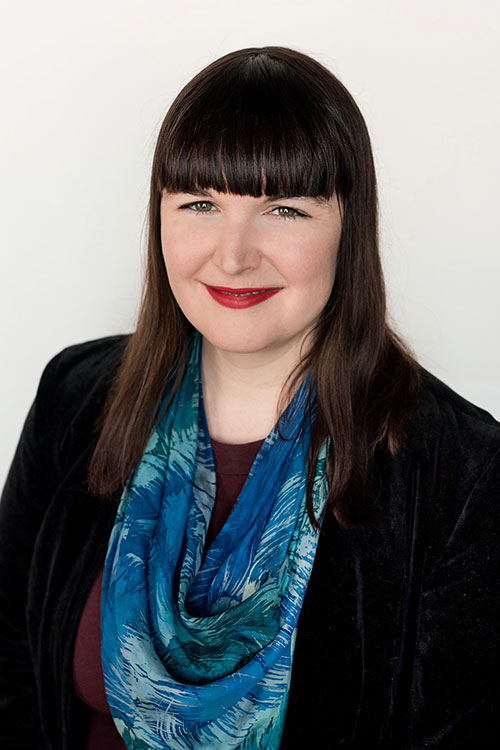
Ellen Smallwood is a registered art therapist and counsellor (M.A, Art Therapy, ATR, ATPQ, CCC) who works with children, adolescents and adults. She takes a client-centered approach to art therapy; combining attachment and trauma-informed practices with humanistic, mindfulness-based, symbolic processes and sensorimotor art therapy. Ellen meets people where they are at, and uses the art-making process as a way to regulate stress, foster self-compassion/ connection, and to encourage curiosity as people explore their personal narrative and a variety of challenges.
Ellen works in private practice and is part of the Pride Therapy Network of Montreal (PTNM). She has worked in diverse settings such as the Jewish General Hospital (in youth service and child psychiatry), and at the English Montreal School Board (at Willingdon and Coronation Schools). She is also part-time faculty in the Department of Creative Arts Therapies at Concordia University (teaching research and clinical supervision in art therapy) and the on-site art therapy supervisor at the Centre for the Arts in Human Development at Concordia. Ellen’s work is informed by her commitment and participation in social justice communities and disability advocacy, and she offers an affirming and supportive space to 2SLGBTQIA+ folks, recognizing the negative impact that systemic discrimination has on mental health for BIPOC, 2SLGBTQIA+, and folks with disabilities and neurodiversity.
Ellen has a passion for research and her collaborative study (with the Montreal Museum of Fine Arts and the Sheldon Memory Lab at McGill) exploring the psychosocial dimension of epilepsy with art therapy was published in the Canadian Journal of Counselling and Psychotherapy. Ellen has been pleased to be a collaborator in participatory action research projects for asylum-seeking families led by Dr. Rachel Kronick and with the Pride Therapy Network’s CHIR research on 2SLGBTQIA+ community mental health initiatives. Ellen remains passionate about art therapy as a modality to address stress and foster connections to self and communities; and she looks forward to hearing from you to consult regarding support on your healing journey. She offers a mix of in-person sessions (limited availability) or online sessions. She can give official tax receipts under naturopathy which some insurance companies may accept or as a Canadian Certified Counsellor (CCC) through the Canadian Counselling and Psychotherapy Association. Please get in touch by email to inquire regarding availability and with further questions.